Under siege in the 1960s, York newspaper starts from square one
The Gazette and Daily
31 E. King St., York
The situation
In the late 1960s, The Gazette and Daily was under siege.
Reporters for owner J.W. Gitt’s alter ego were getting physically and verbally assaulted by police and gangs in this era of York’s race riots. In one case, police smashed a journalist’s camera, exposed the film and sicced a police dog on the newsman.
Some in Black neighborhoods believed reporters were coming there just to get stories, without a real interest in what life was like there. They attacked verbally and made it physical. As a leader in the Black community said, many did not view the newspaper as a “pinnacle of liberalism,” a brand that its journalists held dearly.
Someone — identity unknown — firebombed the Gazette and Daily’s East King Street office in those unrests.
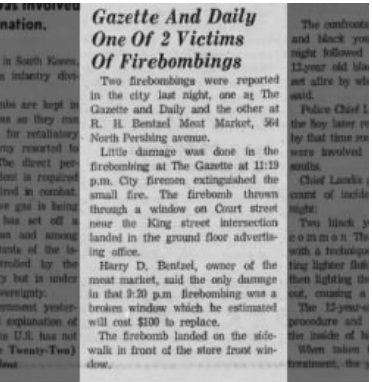
In those turbulent summers of 1968 and 1969, Gitt was nearing his 55th year of ownership, a tenure in which his newspaper gained international notice for its leftist views. So left-wing, in fact, that in the early 1950s, Congressman Jimmy Lind asked the FBI to look into Gitt for reported communistic activities. The FBI could find no such connection.
Indeed, correspondence shows that Gitt worked to separate himself and the Progressive Party from the communists who sought to influence it post-World War II. Gitt was well-placed in Pennsylvania’s Progressive Party, chairing its support for Henry Wallace in his bid for the U.S. presidency in 1948.
Over the years, Gitt’s strident views, such as his unbridled support for Wallace and others on the left, brought criticism his way. When a newspaper doesn’t appear to live up to its strong tag, “The news all the time without fear or favor, bias or prejudice,” it leaves itself open to attack.
So when Gitt refused to accept advertising from right-wing candidate Barry Goldwater in the 1964 presidential election, he was ridiculed by some in the community. He reasoned that he did not accept tobacco or alcohol advertising because it was bad for one’s health. Why should he accept advertising from a candidate who was bad for the health of America?
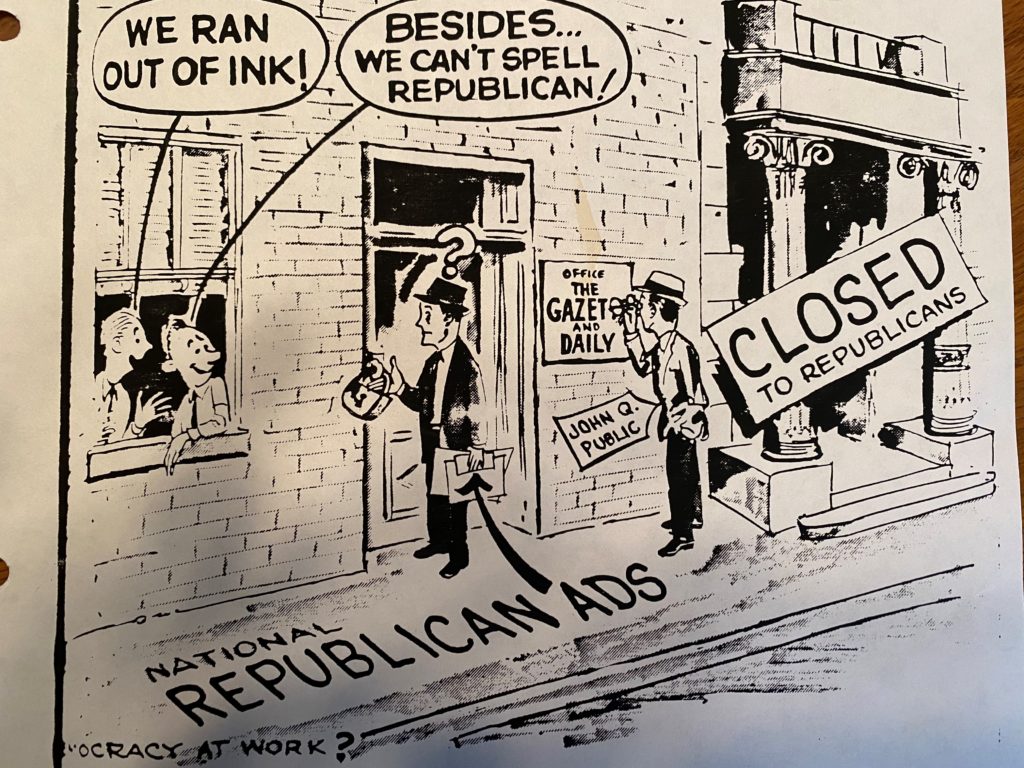
In the 1960s, he pushed for civil rights and justice locally as his reporters pointed out deficiencies in affordable health care, housing, transportation and job opportunities in the Black community. Such reforms ran against the majority view in the community, who elected Republican mayor John L. Snyder for two terms in these crucial years. Two Gitt-supported Democratic candidates who might have addressed those issues — Henry Leader and Albert Hydeman Jr. — fell short in their bids against Snyder.
So when the arrows came at him from all directions in 1969 — particularly from the community’s Black leadership — they found not just muscle and bone, but marrow.

The witness
In light of these attacks, Gitt made a decision. His morning newspaper would start over by putting on its front page a manifesto. What, in fact, did it believe? Well, it reflected on that question and decided to reaffirm it publicly.
“The editors ultimately realized that the years they had spent in documenting the ill effects of discrimination, in exposing the inhumanity of the slums and of the police department, and in pleading for understanding between the races had gone for naught,” Jeffrey Hawkes wrote in a master’s thesis about the newspaper in those years.
So on Aug. 22, 1969, an editorial — an institutional opinion piece normally reserved for the editorial page —appeared on Page 1 under the headline “An Appeal to Reason.”
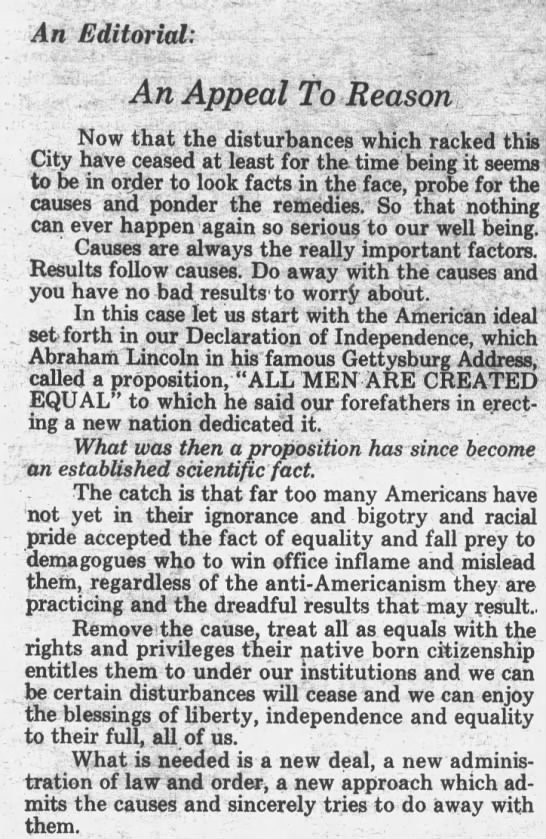
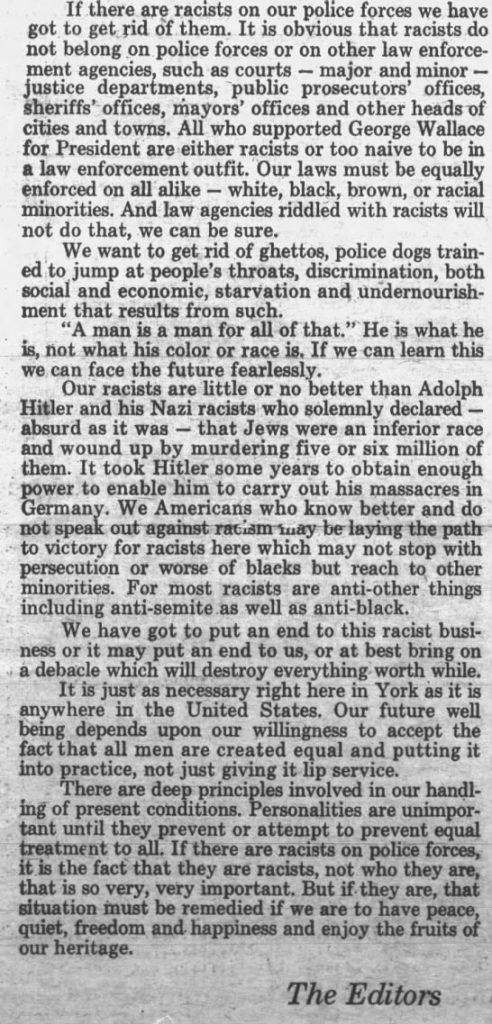
Interestingly, The Gazette and Daily’s manifesto to start over came about a year from its end.
Gitt, whose energy sparked The Gazette and Daily for so many years, was running on fumes.
The lack of community support for the newspaper’s coverage and opinion page surely contributed. The cumulative effect of Gitt’s many controversies and unpopular editorial stances were apparent. The York Dispatch, a conservative competitor published in the evening, offered the public an option. Two-newspapers cities – especially smaller towns, were becoming rarer.
Gitt, then in his 80s, also had no clear heir in his family. He was increasingly absent from York and his hometown of Hanover, pursuing his avocation as a golfer.
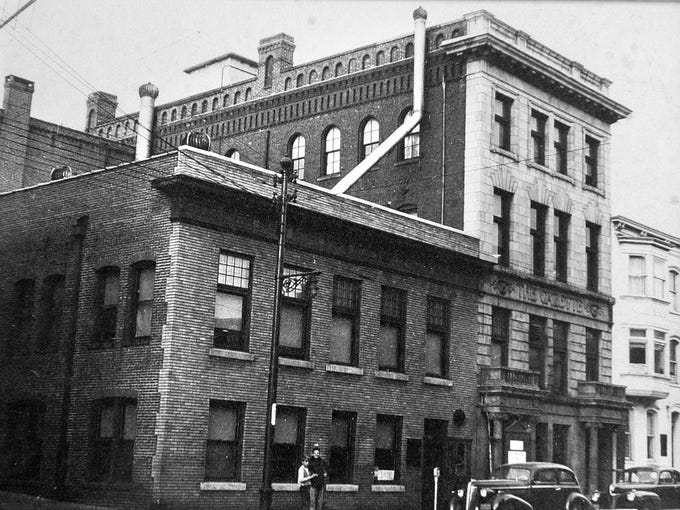
For years, he did not view his newspaper as a profit maker, so it did not build financial reserves. With profit-making a low priority, The Gazette and Daily was in the business of producing “The news all the time … .” Gitt was generous to his employees by most newspaper standards, but when revenue shortages from the tumultuous 1960s forced him to ask for a 10% wage concession, the unionized workers refused.
In October 1970, the typographical union struck — workers called it a lockout — and The Gazette and Daily did not publish for two weeks. In that interval, Gitt retired The Gazette and Daily name and sold the newspaper to a group of lawyers.
The newspaper to come off the restarted presses was named York Daily Record. The lawyers sold the Daily Record to businessman Jimmy Scoggins in 1973, who in turn sold it to Buckner News Alliance in 1977. Each successive acquisition meant modernization of the newspaper in technology (introduction of an early website in Pennsylvania in 1996) and with a non-partisan editorial approach (endorsement of both Republicans and Democrats candidates for the U.S. presidency).
With the Buckner ownership came the square one start that J.W. Gitt and newspaper sought in 1969.
Like The Gazette and Daily, the Daily Record traces its lineage to the original German-language Gazette, first published in 1796, 225 years ago this year.
“I know it was sad to see that paper fold,” said Ed Schaeberle, one of The Gazette and Daily’s editors. “I know a lot of people on staff felt that way. I still think it helped make York a better place to live.”
The questions
J.W. Gitt, the owner of the The Gazette and Daily, openly displayed his personal views so the readers of the paper knew his political affiliation. Many criticized him because he claimed to be unbiased, but clearly presented information in a way that favored specific viewpoints.
What obligation do journalists, researchers, writers, historians, and educators have to disclose their personal views? Would revealing their leanings help people navigate through their unintentional rhetoric? Or, can influencers maintain objectivity without broadcasting their affiliations?
Related links and sources YDR files; Jeffrey Hawkes master’s thesis, 1985, “J.W. Gitt’s Last Crusade.” Jim McClure’s research, ydr.com, yorkblog.com/yorktownsquare. McClure’s “I saw it in the paper,” YDR’s 200th anniversary edition, 1996. Photos courtesy, York Daily Record.
— By JAMIE NOERPEL and JIM McCLURE



